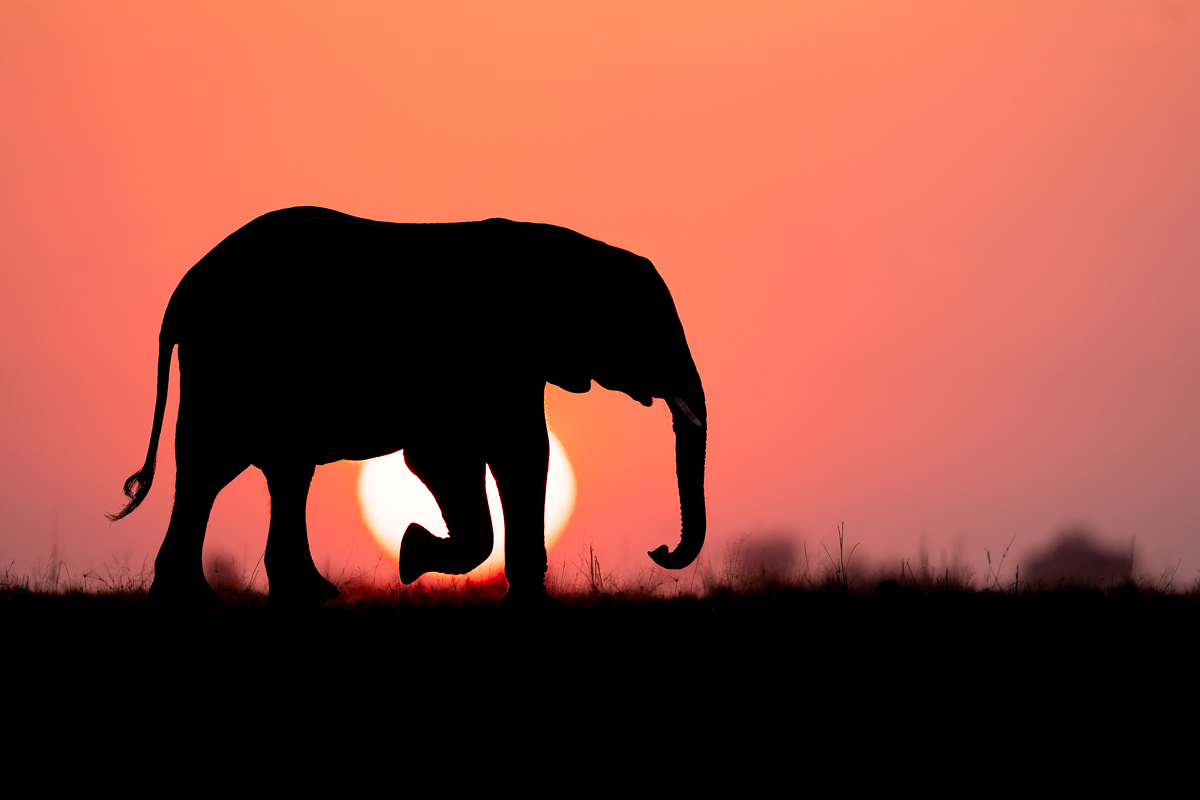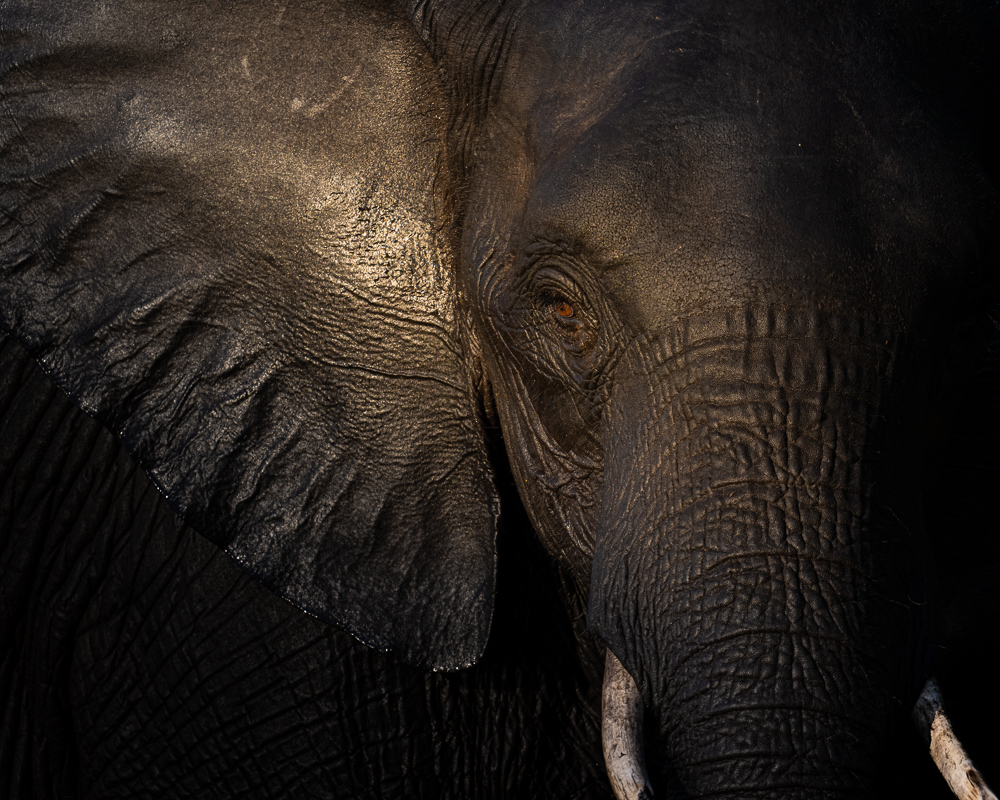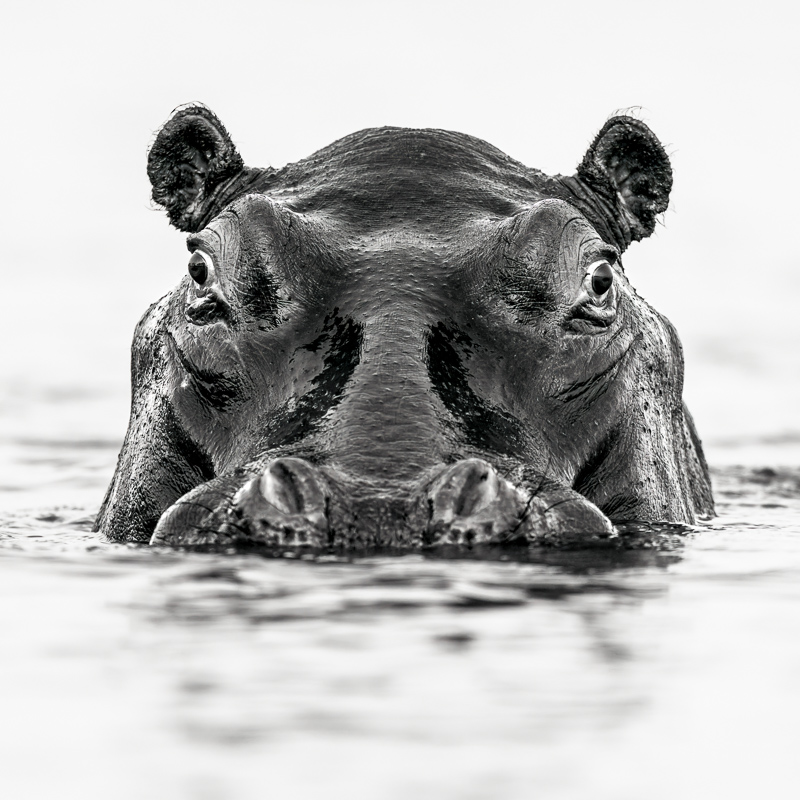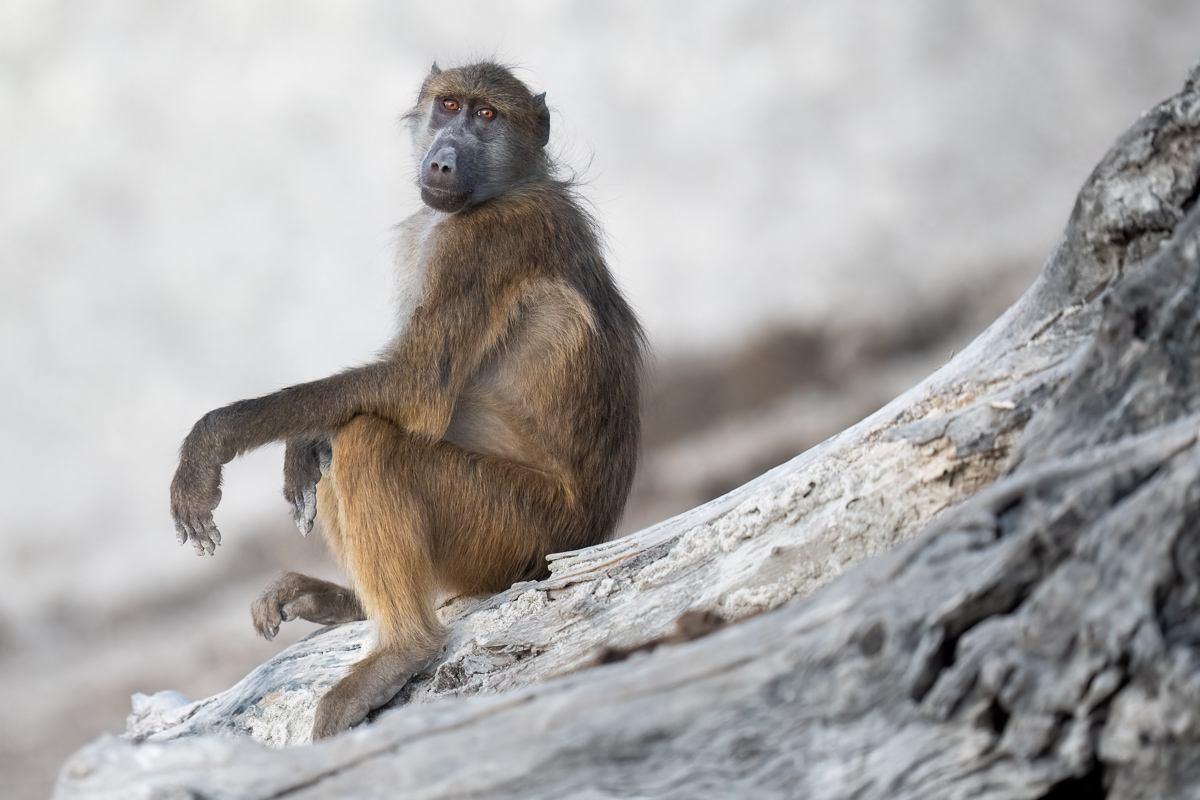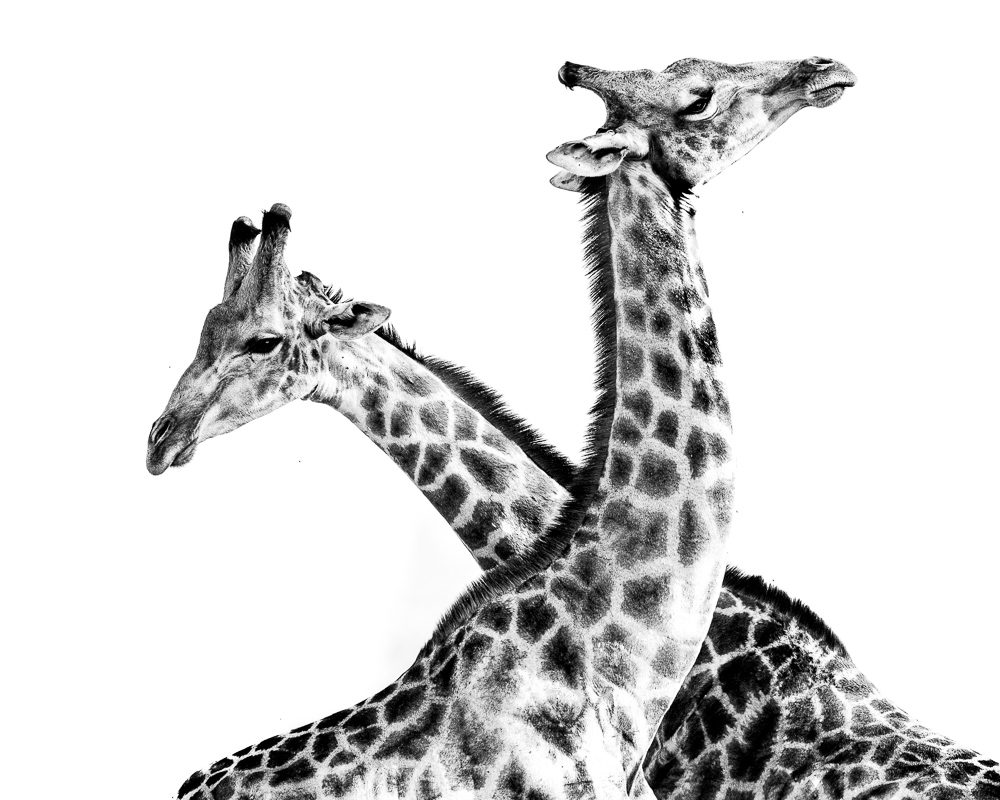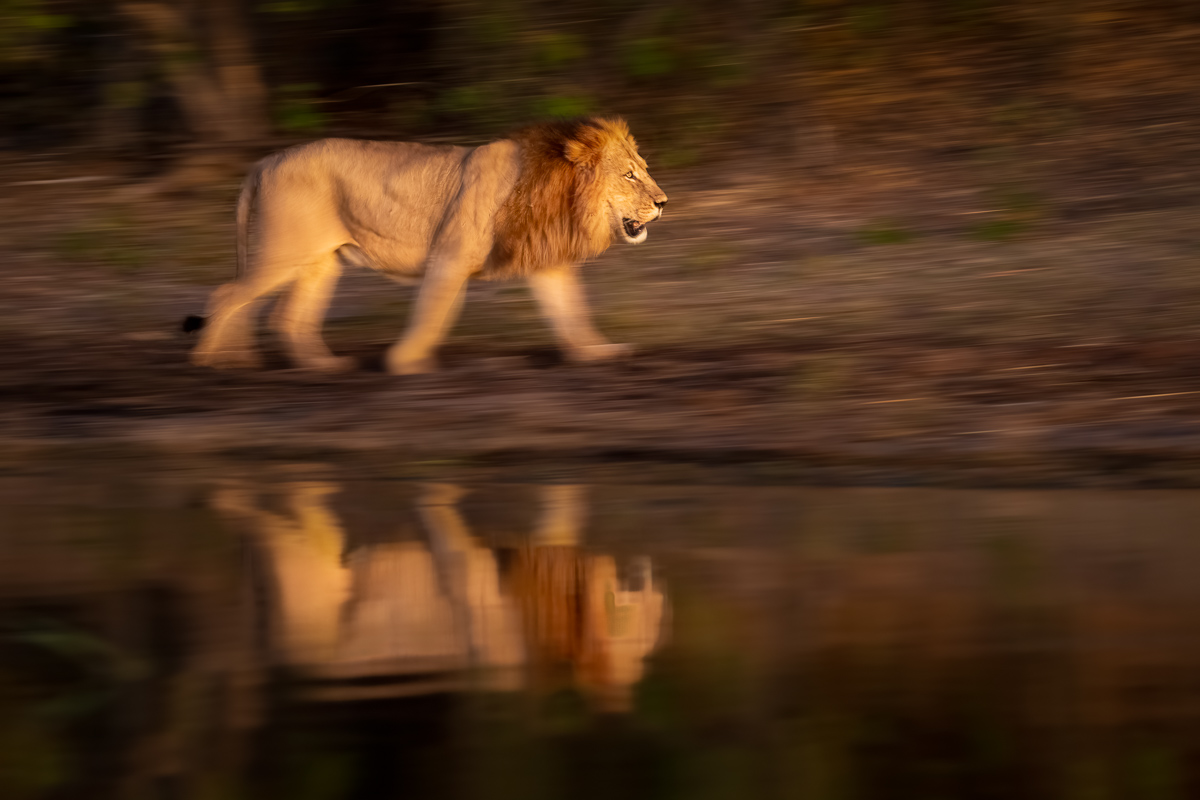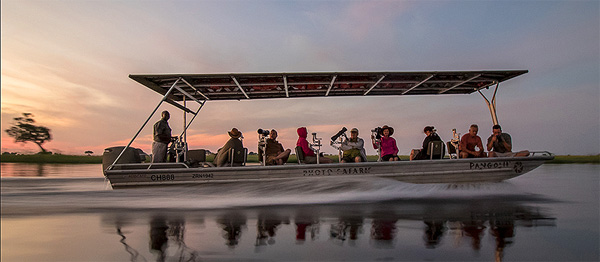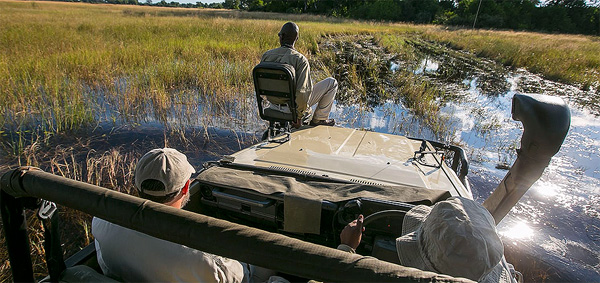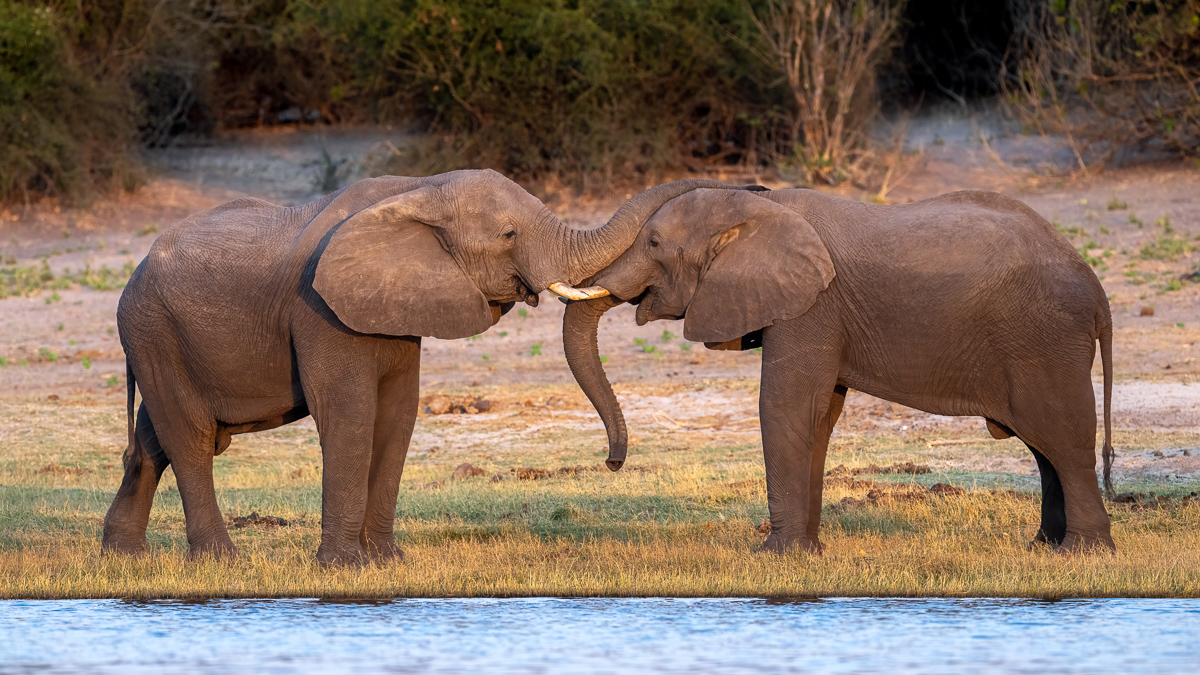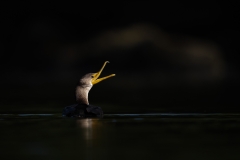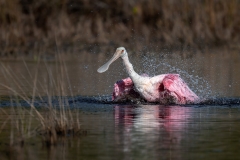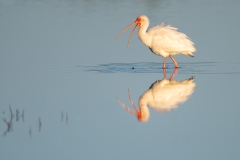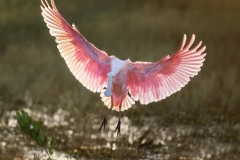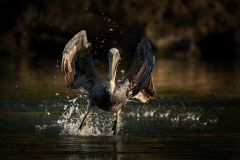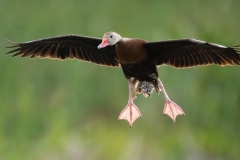Quick Overview:
Sorry, we have now filled the remaining spots. Sign up for the waitlist at the bottom of the page – you may still have a chance 🙂
- May 8th – 17th 2024
- Premium, private workshop limited to just 6 people
- Custom made boat for the Chobe River – everyone has their own seat w/gimbal
- 2 Locations: Chobe River (and national park) and Okavango Delta Region
- Game drives morning and evening
- All meals included once you arrive
- Professional, guides – some of the best in the country
- Amazing accommodations & food
- Enjoy Steve’s personal, expert instruction every step of the way
Africa – it’s on everyone’s bucket list. And you know what? It should be!
There’s frankly no place on the planet that comes close. We’ve all seen African animals in the zoo, but nothing can compare with coming face to face with these animals in the wild. To say it’s the experience of a lifetime simply comes up short – and I’m sure you’ll agree once you’re filling your viewfinder with the face of a lion or an elephant!
This safari takes place in multiple areas of Botswana – easily one of the most photogenic locations in all of Africa.
We start with a jaw-dropping mix of boat touring and driving in and around Chobe National Park. After a few days, we jump on a bush plane and head to the Okavango Delta – one of the most bio-rich areas in all of Africa. From there, it’s back to the Chobe River for even more fantastic wildlife experiences! See my Botswana gallery for all of my current images from these areas.
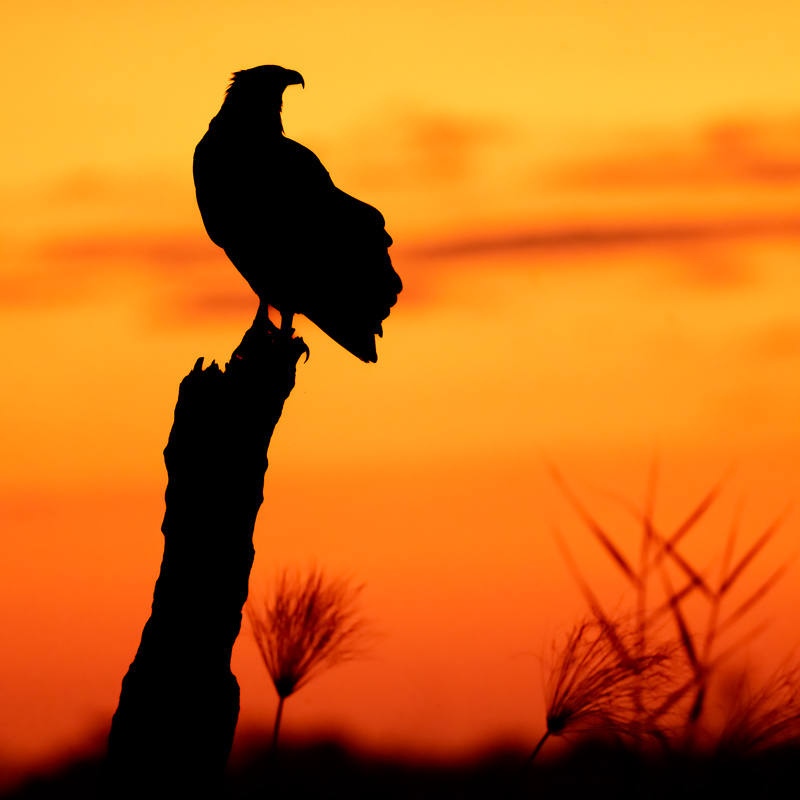
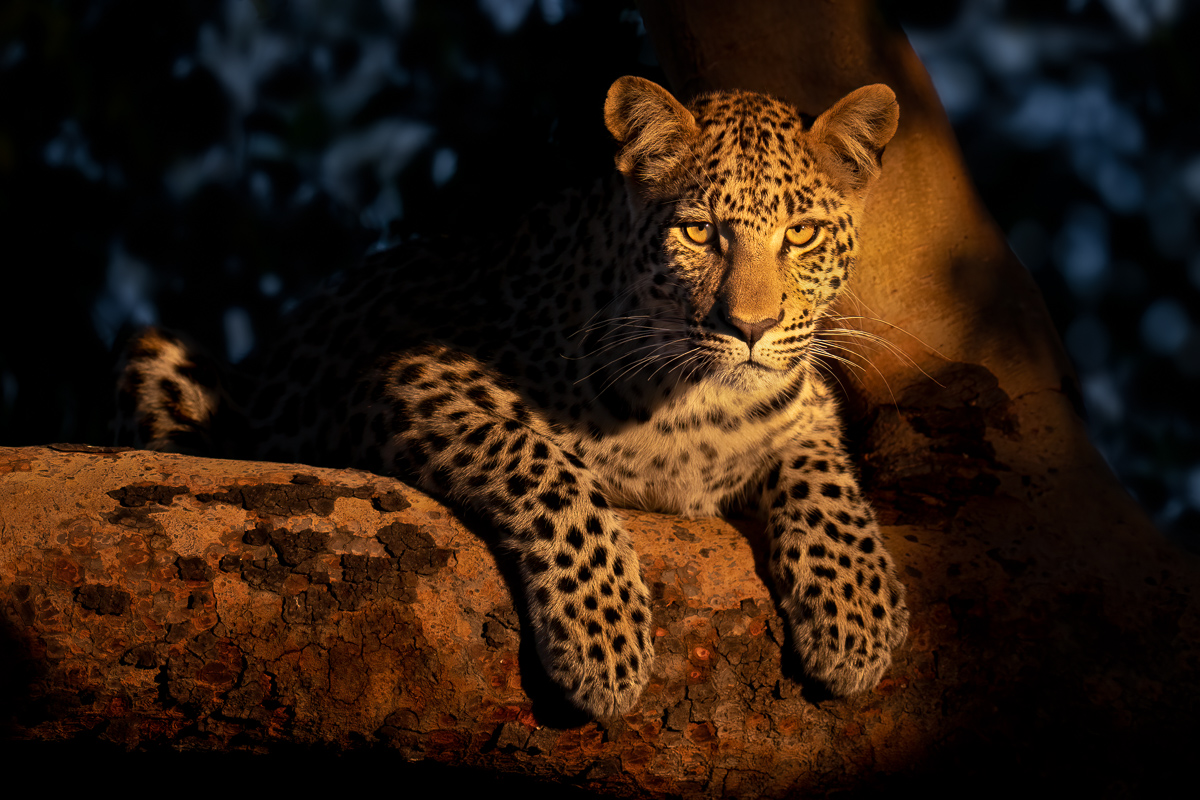
As a full-time wildlife photographer, I can tell you that while other areas of the globe can offer spectacular diversity and beauty, there’s just nothing like Africa – particularly this region. It’s my favorite place on the planet to shoot – and I think it will be yours as well. In fact, I came home with 21,000+ images on my last eight-day trip there!
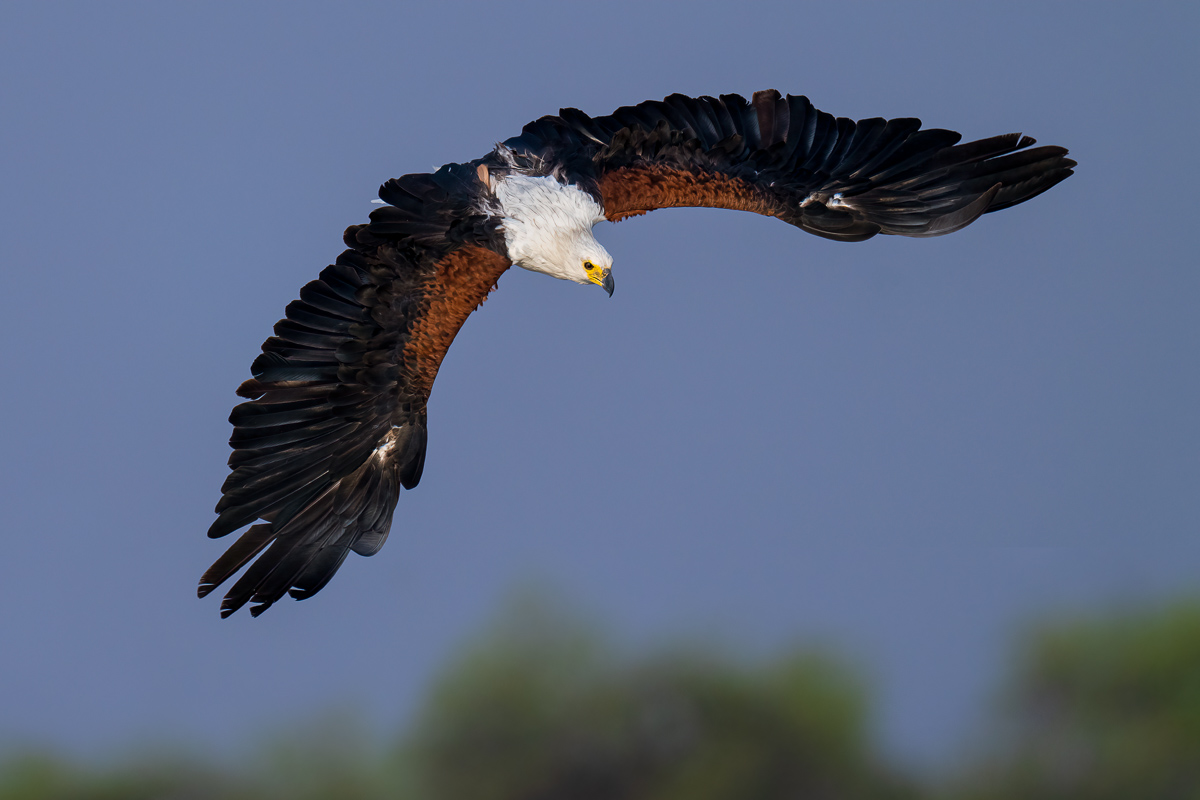
What can you expect to see? While there are never any guarantees with wildlife, this is Africa so you know it’ll be good! It seems that everywhere you look there’s another potential photo. The place is literally dripping with epic photo ops! Here’s a partial list of species that we’re likely to encounter.
Lions
Elephants (so many elephants)
Leopards
Giraffes
Wild Dogs (Okavango delta area)
Cheetahs
Buffalo
Hippos
Baboons (so much fun!)
Zebra
Crocodiles
Fish Eagles
Bee Eaters (super fun and colorful!)
Kites
Kingfishers (all sorts)
Rollers (Lilac-breasted and Purple were very common – beautiful!)
And that is only a VERY partial list! There are approximately 170 species of mammal and a whopping 595 species of birds in Botswana! The diversity is really stunning.
As for the workshop itself, the goal is twofold. First, I want YOU to fill your memory cards with as many incredible shots as possible in the time we have and I will do everything in my power to make that happen. Second, I want to teach you as much as I can about wildlife photography.
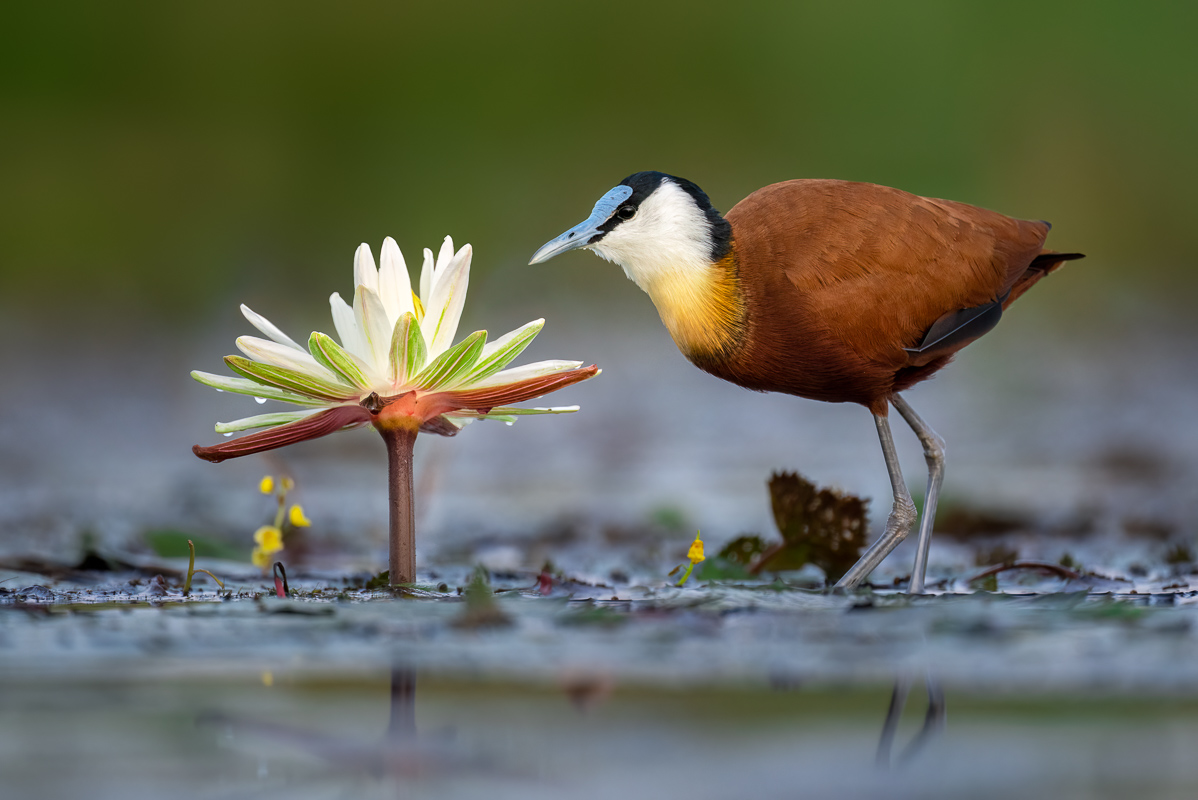
As a dedicated wildlife photographer, more than 90% of the images I capture each year are of wildlife. I’m a specialist, and when it comes to getting critters on your memory cards, I have a wealth of tips and tricks up my sleeve that will help you accomplish that goal. Also, and as many of you already know, teaching photography is what I do – just check out my extensive collection of blog posts and videos to get an idea of how I convey myself and my information.
In this workshop, I’ll not only help you get the shot, but I’ll also share tips and tricks you can use to capture the special moments of any wildlife encounter. We’ll look at everything from camera and tech settings to creative techniques – it’s the whole package, and I think you’ll really enjoy it.
Throughout the workshop I’ll be there to guide you and assist in capturing those wall-hangers! Also, while I will be shooting alongside you during the workshop, my primary goal is to help you get great photos on YOUR memory cards. I’ve heard of nightmare workshops where the instructor was more interested in his or her own photos than that of the participants – that is NOT the case here. YOUR images are the priority.
Naturally, we’ll have some of the very best guides available to help us locate and capture these unforgettable wildlife moments. Our guides are amazing at getting us into (and, in the case of the boats, keeping us in) position for the perfect image. They know what photographers want and they know how to deliver it.
Since this is Africa, we’ll be shooting from vehicles – in this case, Safari trucks and boats. The trucks are built for photography and make getting into position and finding the shot simple.
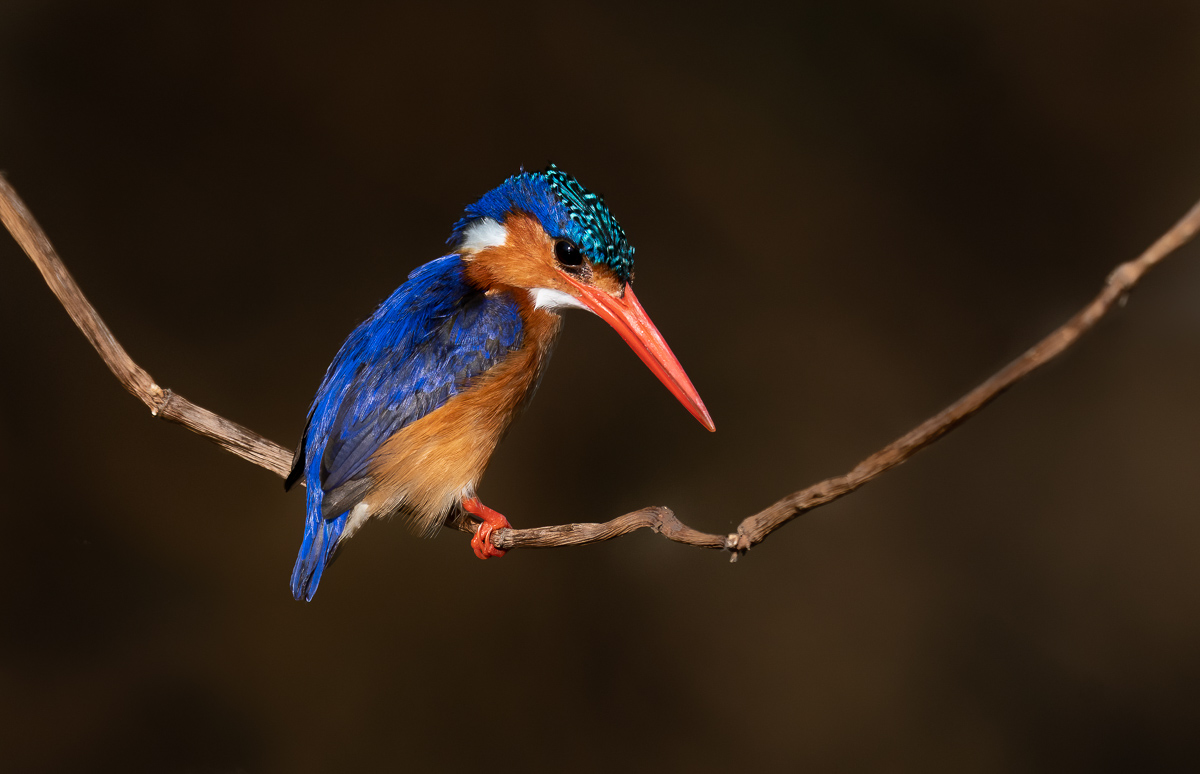
The boats are also built from the ground up for photography. They are a flat-bottom boat with eight seats down the middle – and a gimbal head for each one! Just mount your lens, sit back, and write those wall-hangers to your card!
Both the truck and the boat feature a roof that’s out of the way for photography but sufficient to keep the sun off. It’s a wonderful setup.
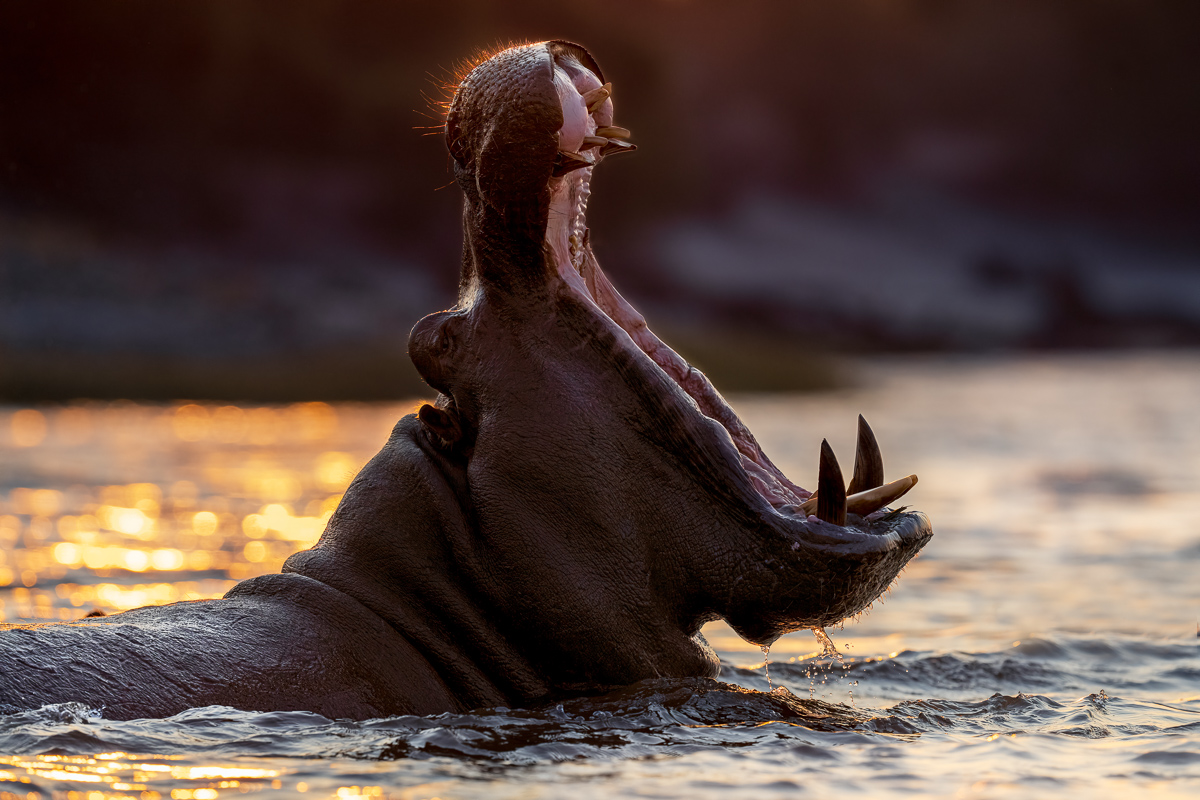
Itinerary
Day 1 – Meet and greet at the main lodge and evening shoot.
This is when we finally meet – I’ll be at the lodge when you arrive and we’ll go over a few things to get us started. However, this isn’t just a transfer day – we’ll be heading out to the boat this evening for our first shoot on the Chobe River!
Day 2 -3 – Morning and evening game / boat drives
We’ll have morning and evening game drives these days (we mix the regular game drives in the park with boat trips, depending on what’s best). We’ll go out in the morning until the light becomes poor, then back to the lodge for brunch.
After that, we’ll chat, do an image review, or take a nap – all depends on what the group needs. After a light snack in the afternoon, it’s back out for over evening game / boat drive.
Upon our return to the lodge, we’ll have time to clean up before dinner – and let me tell you, the dinners here are outstanding!
Day 4 – Morning Game / Boat Drive > Transfer to Bush Camp > Game Drive
Depending on the airline schedule, we’ll plan to head out in the morning for a quick game or boat drive, then back to the lodge to pack and get ready to head out to the Okavango Delta.
Once packed, we’ll jump on a bush plane and head to our bush camp. Our guides will be waiting at the airstrip to pick us up and take us to camp.
Once we’re settled in, we’ll enjoy an evening game drive.
Day 5 & 6 Morning and evening game drives in the Okavango
We’ll start out each day with a light breakfast and head out to explore the Okavango delta region. The Okavango is home to some of the most diverse wildlife in Africa, including the normally difficult-to-spot African Wild Dogs (they are hit and miss, but at least we have a shot). Each game drive is unique and holds massive potential for once-in-a-lifetime images.
We’ll do a game drive in the morning, come back for lunch, and have another game drive in the evening. Once we get back, we’re treated to a wonderful dinner at camp.
Day 7 – Okavango game drive and back to the lodge for more shooting along the Chobe River
On day 7 we head out with our luggage on our morning game drive and make our way back to the airport. The trip is about two hours, so plenty of time to spot and photograph even more wildlife.
Shortly after we arrive at the airport, our bush plane will pick us up and take us back to the Chobe River.
Day 8 & 9– Game / Boat Tours
During our final days in Botswana, we’ll sped more time exploring the Chobe River and capture even more knock-out images!
Day 10 – Heading Home
All good things must come to an end, and on Day 10 we start our journey home – memory cards and hard drives overflowing!
Q&A
What dates are you going?
2024:
You’ll arrive in Kasane (where the lodge is) on May 8th and fly home after the game drive on May 17th.
This is the time of year when the water in the Chobe is on the high side so expect to see elephants up to their ears in the water!
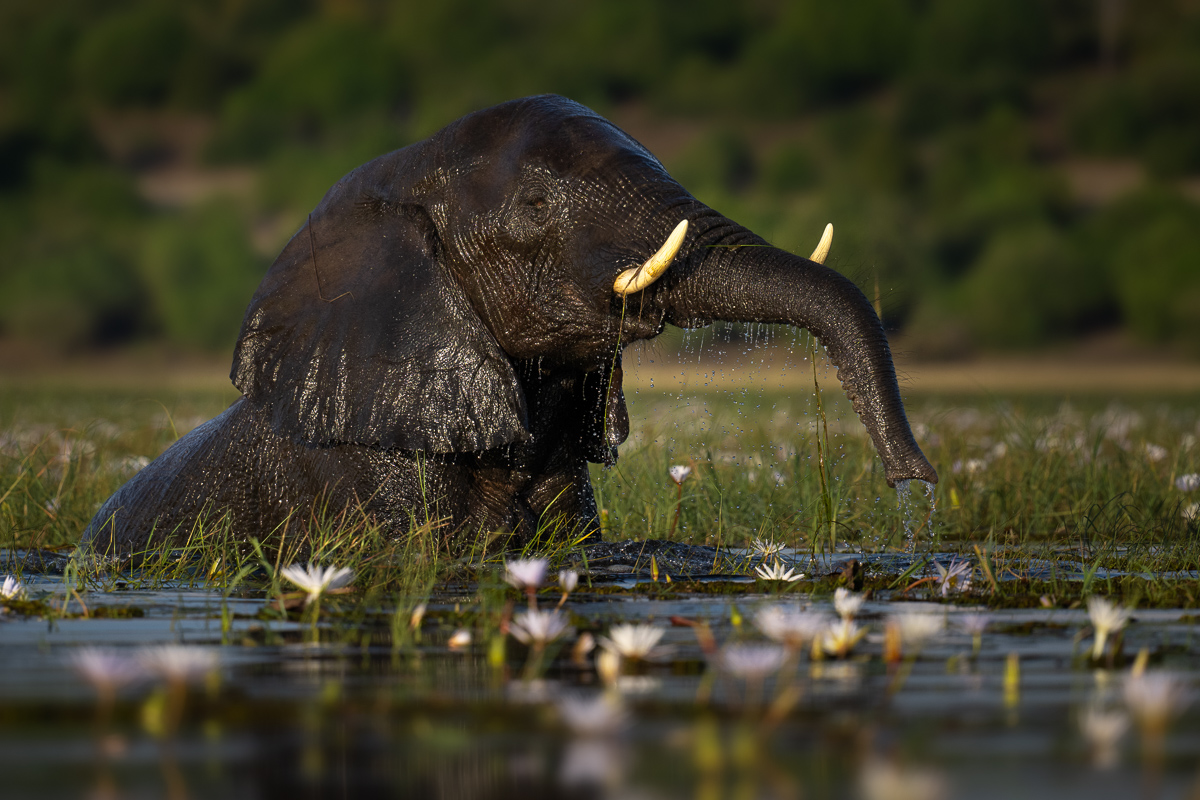
Also, in some cases due to required double-occupancy, we are forced to limit the final signups by gender. We can’t have a random male bunking with a random female. Any limits will be noted above.
What’s the skill level?
This trip is best suited for photographers who have at least some experience with their cameras and have done at least a bit of wildlife photography. The subjects / locations on this trip are relatively easy and don’t require a ton of prior experience, but your keeper rate will be higher if you at least know some of these basics:
First, you should be comfortable with operating your camera. You should also be familiar with – and able to change – the following options on your camera:
- Exposure Modes
- Exposure Compensation
- AF Modes / Areas
- Metering Modes
- Drive Modes
- In addition, you should understand what shutter speed, F/Stop, and ISO do.
In short, the goal of this trip is to teach wildlife photography, not the basics of photography.
If you’re unsure if you have the proper skill set, contact us.
Are the animals wild?
Yes. Many people think this is sort of like a zoo experience where we head out to a location and the animals are just dripping off the trees. That’s not the case – this a wildlife workshop, not an excursion to the zoo. If you want a zoo-like experience, this trip isn’t for you.
However, if you like and accept the idea of photographing wild animals, you’ll have an incredible time! Sure, we can’t predict what we’ll see or when we’ll see it, but the area is teeming with wildlife and it’s always a blast!
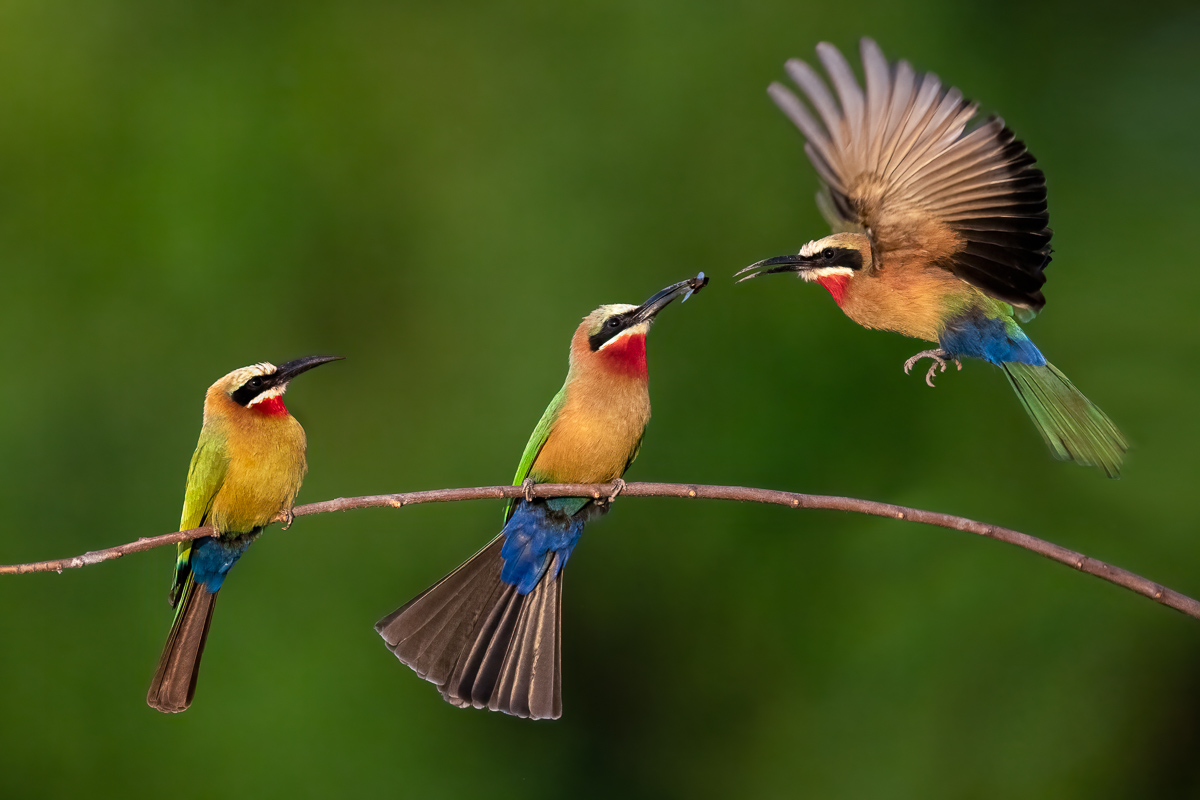
What’s included?
- All meals / food
- All drinks
- Lodging throughout the workshop as outlined above. Note you can come early / stay later but your package only includes the nights for the workshop
- All park entrance fees
- All game drives (by boat or truck)
- Ground transportation during the workshop
- Flights from Kasane to the bush camp and back to the main lodge
What’s not included?
- Your flights from home to Johannesburg and then to to Kasane the next day (note you’ll need to book a night in Johannesburg – we can help with recommendations – lodging is not including for that night).
- Your flights from Kasane to Johannesburg, and then home.
- Excessive baggage fees
- Gratuities / tips
- Airline fees / insurance / passports / personal expenses
- Any additional tours, activities etc. not expressly mentioned in the workshop
- Any additional nights accommodations that take place beyond the time frame of the workshop dates
- Laundry (there is an on-site laundry service)
- Any emergency services, if necessary.
- Any meals you decide to have outside of the resort.
- Travel Insurance (not included but highly recommended)
- Any other expenses not explicitly covered in the “What’s Included” section above.
Can my spouse / family member come?
Yes, however, they would pay the full workshop fee. Due to limited accommodations at the camp and on the houseboat, we simply don’t have the space for non-workshop participants. If your spouse wants to pay the full workshop fee and come along for the experience, they can.
How many participants are in the workshop?
To give you the best experience possible, we’re limiting the number of participants to just 6 people. Booking will be done on a first come, first serve basis – nothing is held unless a deposit has been placed. Note that due to limited accommodations on the houseboat and bush camp, double-occupancy is required. If you don’t have a companion, you will be sharing with someone (of the same gender of course).
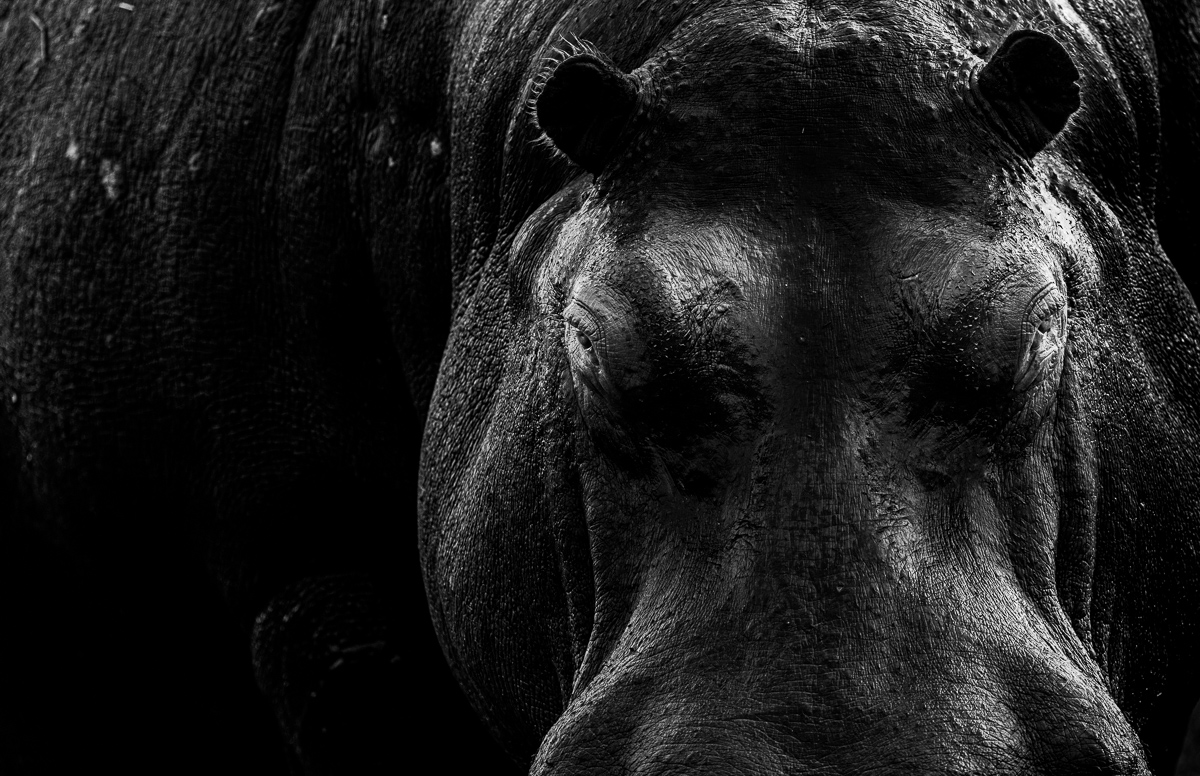
What should I wear?
The weather in Botswana varies. It’s frequently chilly (surprisingly so) in the morning and hot during the day. So, I tend to take a variety of clothing I can layer as needed.
When I go, I generally take the following:
Shorts
Long, lightweight pants
Long, warmer pants for cool mornings / evenings
Short Sleeve Dry-Fit style shirts
Long Sleeve Dry Fit style shirts (for sun protection if we’re out on a sunny day – shirts with SPF protection are recommended)
Lightweight hat
Lightweight hiking shoes (preferably waterproof)
Lightweight raincoat
Warm pullover / quarter-zip style shirts
Mid-weight jacket (morning temps are sometimes in the 40s with a breeze)
Note – sometimes the best kind of jacket is the “three-in-one” variety where you have a raincoat / wind breaker at the outer layer and a warm insert as the inner layer. That way, you can use just the outside, just the inside, or both as needed.
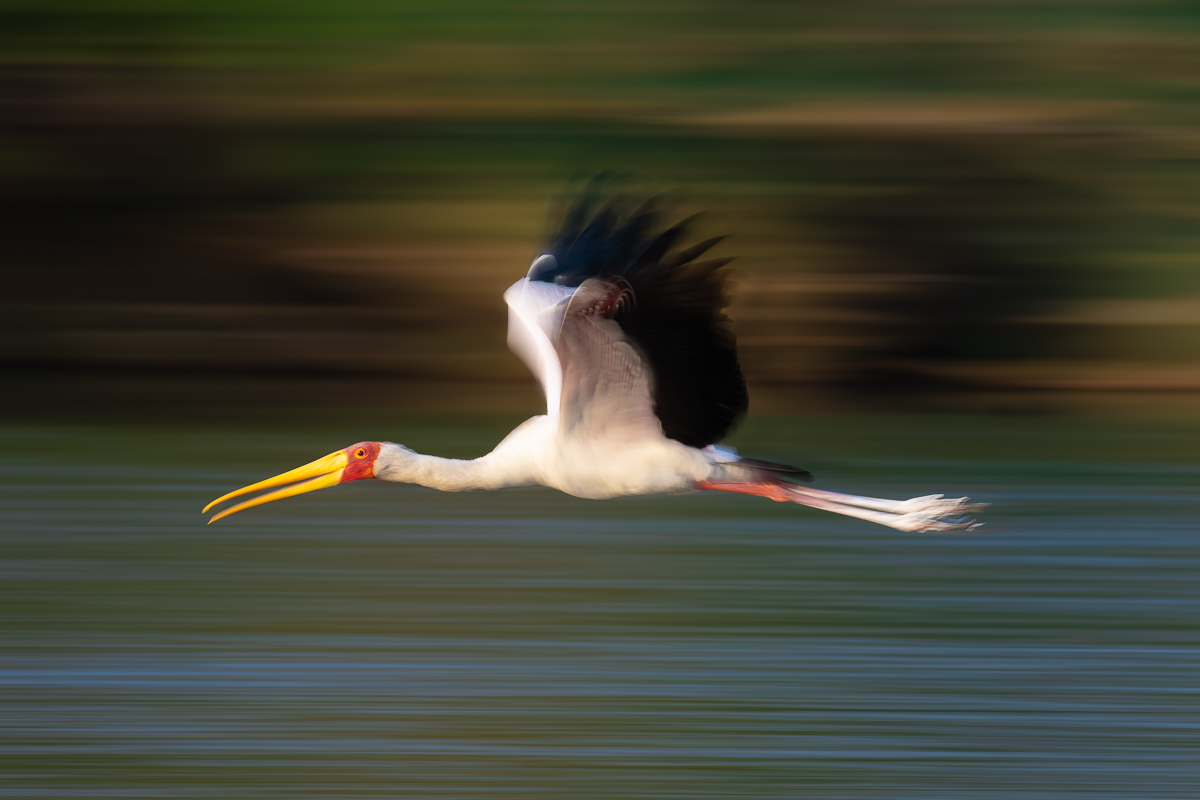
What should I bring for photo gear?
Keep in mind this is a dedicated wildlife trip, so you’ll definitely want your big glass. Using full-frame, you’ll want at least 400mm; however, I HIGHLY recommend 500mm ~ 600mm or more. One of the super zooms is a good choice like the Nikon 200-500 / 180-600, Sigma 150-600, Tamron 150-600, Sony 200-600, or Canon 100-400 just to name a few. If you happen to have a big prime that’s even better – I use my 600mm F/4 all the time and it works out extremely well.
I also recommend taking a short zoom for close wildlife encounters – it’s not unusual to get very close to elephants with the boat this time of year. Plus, it’s always possible a good landscape opportunity will crop up. Something like a 24-70 would be just fine.
Since it can be rainy on occasion, you also may want some sort of “rain jacket” for your gear.
Note – you will not need a tripod or monopod.
When it comes to cameras, pretty much any DSLR or mirrorless camera can work. We generally have decent light so I don’t worry as much about high ISO capability here as I do in other locations.
Oh, and don’t forget extra memory cards, storage, and batteries!
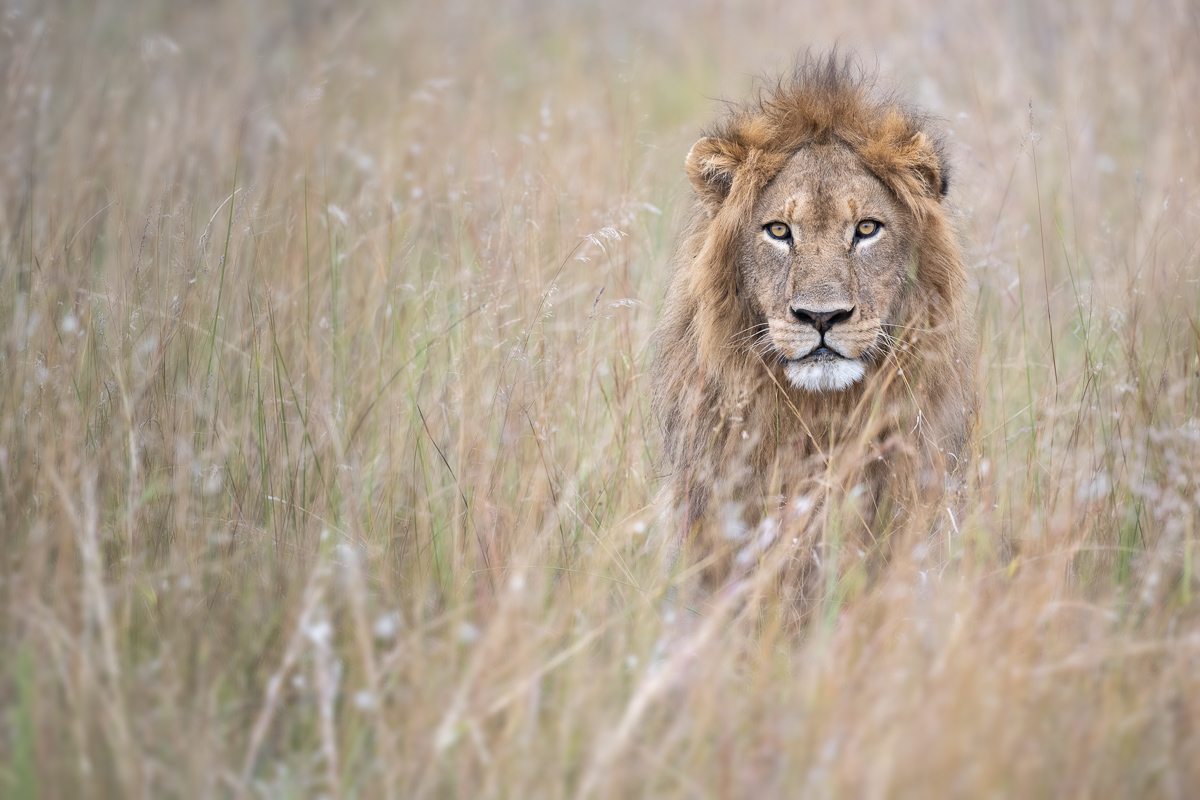
What type of non-photography gear should I take?
You’ll want your laptop / card reader for sure – we take a TON of photos and you’ll want to offload them at night. I’d also recommend an additional backup device, such as an external hard drive or large memory card (I highly recommend an SSD drive for this purpose as they are more reliable than spinning drives).
You’ll also want:
- Bugspray (the bugs really aren’t bad at all – most of the time you won’t need it, but doesn’t hurt to have it)
- Hat
- Knee pads (optional – for getting low in the boat if you desire)
- Buff (to help with the dust)
- Sunscreen (High SPF – the sun can be brutal)
What language do they speak in Botswana?
Not to worry, English is the official language. (Most natives speak Setswana or Tswana as well.)
Do I need any shots or immunizations?
There are usually some that are recommended / required. However, we cannot give medical advice – we can only point you to the CDC resource:
https://wwwnc.cdc.gov/travel/destinations/traveler/none/botswana
You’ll need to consult your physician to see what is right for you.
Is it safe there?
Caution is always advised, but as long as your careful, there shouldn’t be a problem. We never felt “unsafe” when we were there – you just need to keep an eye on gear (as you would anywhere else).
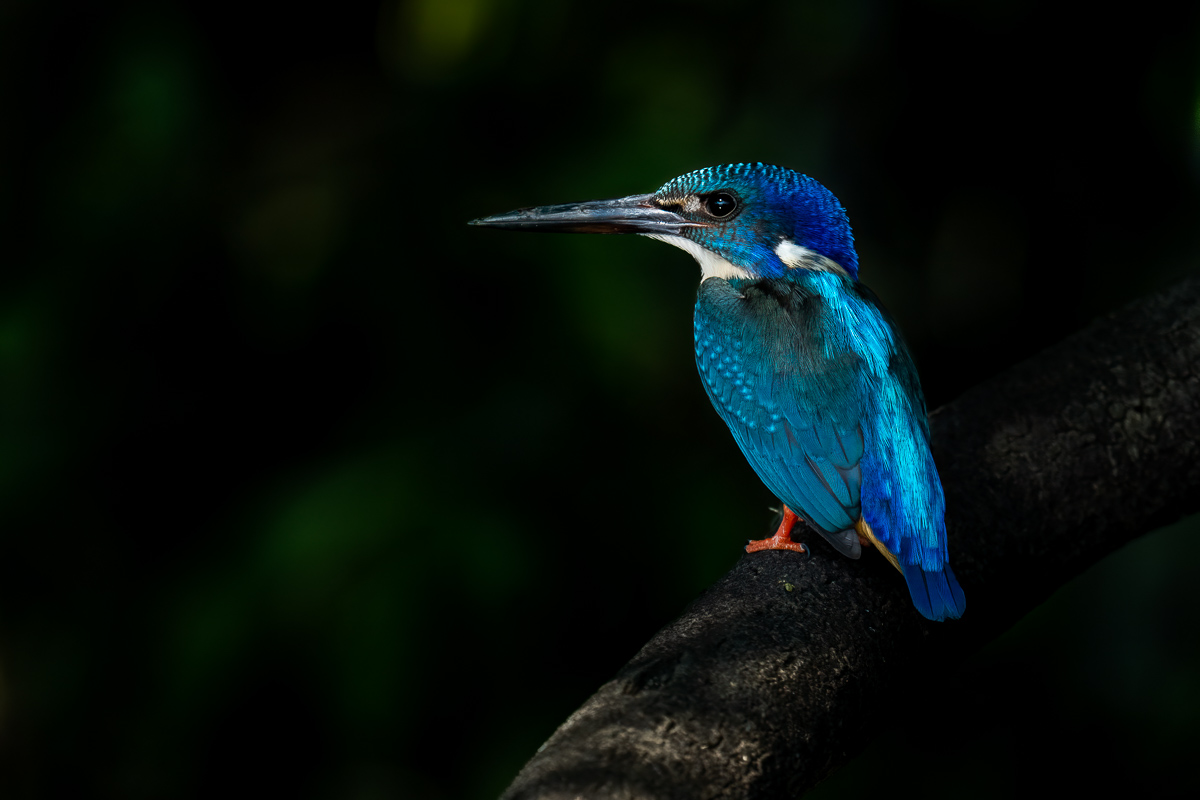
Is there a lot of hiking?
No, not on this workshop since we are restricted to vehicles for our photography. Walking is limited to strolling around the lodge and the camp.
Is the area packed with tourists?
It depends on where you are and the time of day. In some cases, you will see other boats / vehicles with photographers (like if there’s a lion kill for example), but it’s generally not crazy (and if one area is busy, we can always move on). Most of the time, we tend to have the wildlife more or less to ourselves.
Will there be opportunities other than wildlife?
Just to be 100% clear – this is a wildlife photography workshop, so the critters take precedent. However, that doesn’t mean you can’t grab a nice landscape or two while you’re down there. However, keep in mind that opportunities are limited in this regard. If you’re looking for a mixed wildlife and landscape trip, this one is not a good choice. We’re pretty much all wildlife, all the time.
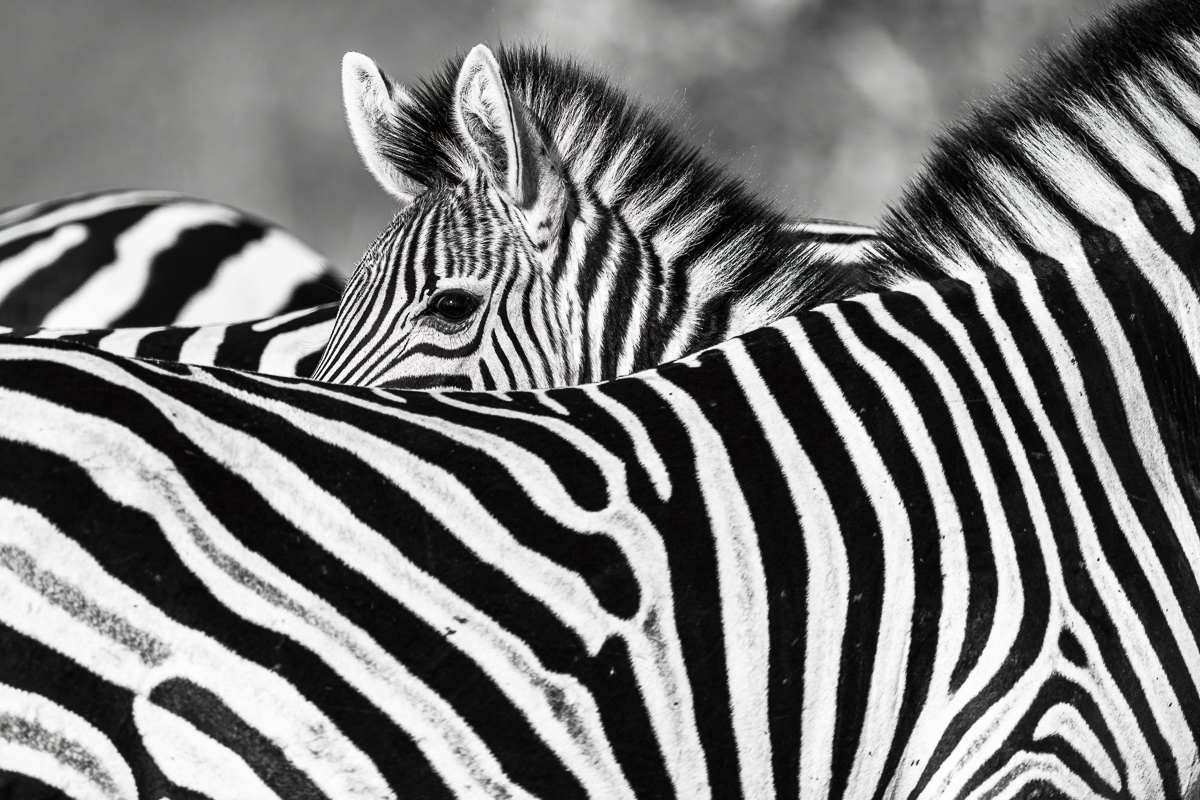
Is any of this subject to change?
Yes. We may choose to rearrange / modify the schedule based on weather, unforeseen circumstances, or just better opportunities for you to get a better selection of images. The primary goal is for YOU to get as many great photos as possible, and any schedule change will be based on meeting that goal.
What’s the price?
For the 2024 trips, the price is $12,595 per person (double occupancy only) with a deposit of $6000 per person due upon booking (Note, if you book within 90 days of the trip, the entire payment is required upon booking.)
Again, this is fairly inclusive and includes:
- All meals / food (provided at / from the resort)
- All drinks (provided at / from the resort)
- Lodging throughout the workshop as outlined above. Note you can come early / stay later but your package only includes the nights for the workshop
- Ground transportation during the workshop
- Flights to and from bush camp to lodge
Note that you will be responsible for the flights from your home to Johannesburg and Kasane (we can assist if needed). Check with your favorite airline for current rates.
Covid info
There are currently some travel restrictions in place that you should be aware of before you decide. Both Botswana and South Africa require a negative PCR test 72 hours prior form your departure. I’ve listed the links and relevant policies below:
South Africa:
https://www.gov.za/covid-19/individuals-and-households/travel-coronavirus-covid-19
The traveler providing a valid certificate of a negative test which was obtained not more than 72 hours before the date of travel
Botswana:
Botswana doesn’t have a clear policy on their government website yet, they are just now reopening. The US Embassy in Botswana has this:
Entry and Exit Requirements:
- Are U.S. citizens permitted to enter? Yes
- All travelers are required to present a negative COVID-19 PCR test valid within 72 hours of their departure for Botswana. Travelers who are symptomatic or who do not meet the test requirement will be tested and quarantined at their own expense. The regulations are not clearly published or enforced, so expect inconsistent application of rules and sudden unexplained changes in enforcement.
In short, as of this moment, it seems you only need a negative PCR test taken 72 hours before you get on the plane. This should be fairly easy since rapid testing is widely available in most locations. Also, it looks like Botswana may or may not be completely enforcing it at this time – again, they are just reopening and getting their policies straight. I’m confident they’ll have a better handle on it by the time the workshop comes (it’s still about six months away). From our discussions with the safari company, who have been traveling back and forth, it’s pretty simple – just get a PCR test within 72 hours of departure and it’s all good. In addition, there are testing facilities available for us when traveling back should they be needed.
Finally, keep in mind that this is subject to change.
What if I have questions?
Send ’em to us via our contact form and we’ll get back to you as soon as you can. Note that this is only for questions – to sign up, use the form below.
How do I sign up?
Fill out the form below to start the signup process if you’re ready to book / put down your deposit. Thanks!

